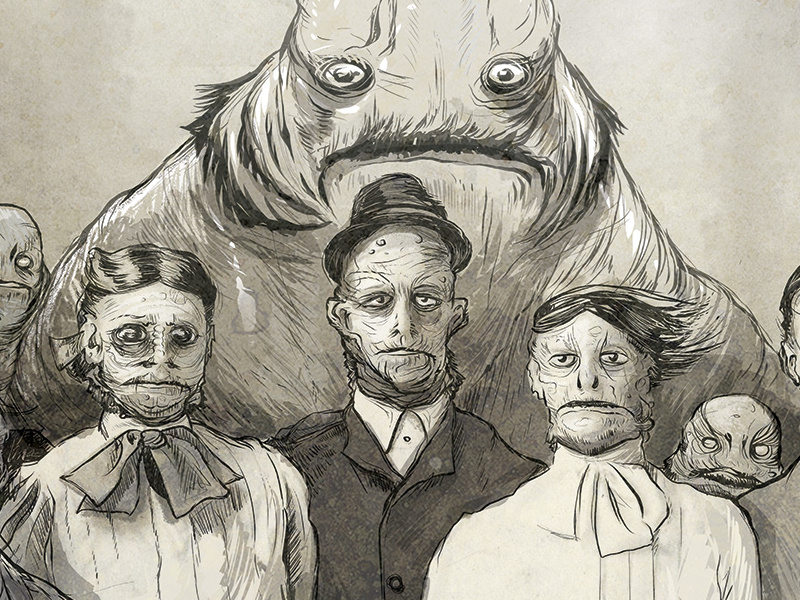“Every man is a book; if we’re opened... we’re red.”
Leonard Russell is a young man with a burning ambition to be a novelist. He recently left home and moved to a cheap apartment in the big city where he was sure he’d find inspiration to write. It might be a romantic notion, but it seems to have worked, because people who’ve read his stories agree that he’s improved remarkably in a surprisingly short time. It surely can’t be long before a publisher accepts a manuscript and Leonard earns the recognition he’s hungry for.
However, recently Leonard’s health began to suffer. He became pale and shaky, and occasionally drifted off into a daze without warning.
People started to worry, and with good reason: just a couple of days ago he collapsed while walking down to the corner store. Fortunately, a concerned onlooker was able to drive him to the emergency room where doctors made a startling discovery -- there was so little blood in Leonard’s veins it was a surprise he’d been able to walk at all. Odder still, his fingers and palms were dotted with dozens of tiny scabs, some of them still bleeding.
Possibilities
1 Leonard picked up a bit of spare cash a few months ago translating an old French play, “Le Roi en Jaune” (The King in Yellow).
During the translation he was struck by an idea which at the time seemed so simple it made him gasp -- with just a few minor modifications he could rebuild his typewriter into an engine for cranking out brilliant prose. It worked, and Leonard now owns a typewriter which can make those words that sound so good in your head look equally good on paper.
Anyone could use this typewriter to pen a bestselling novel. But there’s a price to be paid -- each key has a tiny needle embedded in it which draws a drop of blood every time it’s pressed down, and transfers it to the ribbon. Leonard’s brilliant manuscript is quite literally written in blood, and producing it has taken its toll on him.
Leonard is now completely mad, and unless someone intervenes, he discharges himself from hospital and eagerly returns to his desk to die in the process of finishing what will be acknowledged as the decade’s greatest novel. His typewriter passes to a relative...
2 Leonard likes his fiction to be as realistic as possible and borrowed a few phrases in an obscure language for his characters to repeat at intervals in the novel’s progression. The speech came from an old book of occult lore he browsed through in a second-hand bookshop. Unfortunately, Leonard has a habit of muttering the words under his breath as he types them out on paper, and has been unknowingly summoning a star vampire every time he sits down to write.
The summoning spell includes a binding component, so the vampire hasn’t been able to kill him -- it just takes its payment in blood each time it’s summoned and waits patiently for orders from its master before finally returning to where it came from when the spell wears off. Mind focused on his work, Leonard hasn’t even noticed the slow, repeated drainings, but now he’s lost too much blood to ignore.
If Leonard returns to writing his novel, the vampire finally takes enough blood to kill him. The binding spell fails, and the vampire is free to do as it likes on Earth. Worse yet, the novel is published, putting a dangerous magical spell in the hands of the unsuspecting public.
3 Leonard has been spending time with recent immigrants to research his novel. During that time he picked up a new and undiagnosed disease which the foreigners have a resistance to, but which locals do not have antibodies for. The disease is spreading through his blood and soon other parts of his body will also show the tiny sores. It spreads by touch, so bloodstains in Leonard’s apartment and especially on the keys of his typewriter have become a vector for its continued dispersal. The disease isn’t fatal to young and strong people, so his life isn’t in danger, but infants and the elderly are at risk.
If the authorities don’t realise the situation in time to isolate Leonard and destroy his belongings, the city is gripped by an epidemic worse than a new strain of influenza in less than a month.
© Chris Kerr





